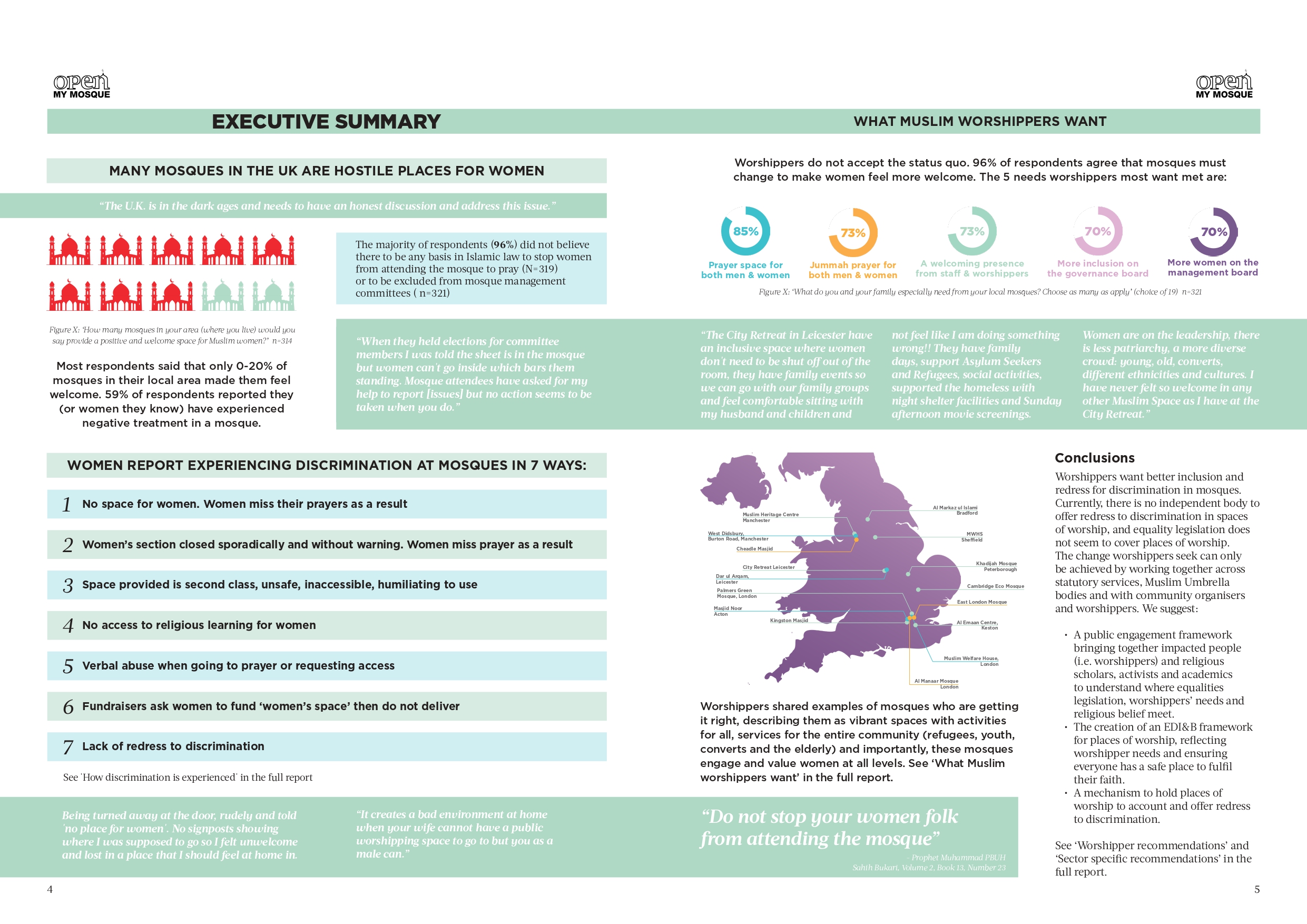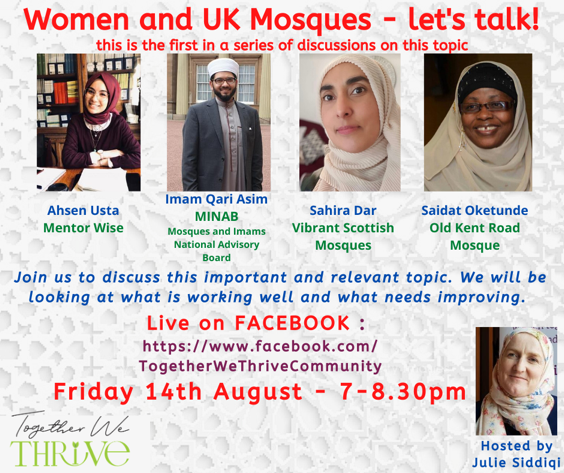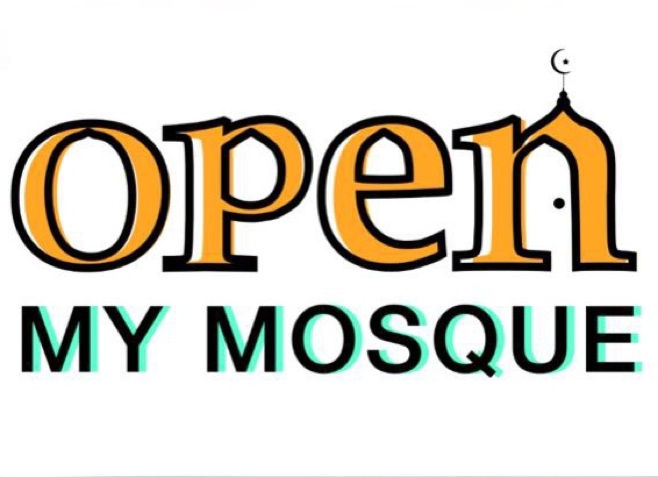Women and Mosques
On Monday 4th March, the Together We Thrive network launched this groundbreaking report in the Houses of Parliament. Hosted by Baroness Sayeeda Warsi and as part of International Women’s Day with the theme this year, ‘Inspire Inclusion’. Following 9 years of listening to stories and research, we knew something more needed to be done about inclusion in UK Mosques. Find the full report below. And see also below the excellent articles from Hyphen online and the Religion and Media Centre. Thank you to Burhan, Saman and Ruth for their excellent reporting and allyship on this journey. So important we tell stories in a useful way. Get involved. This was a launch ACTION, there is lots to do!
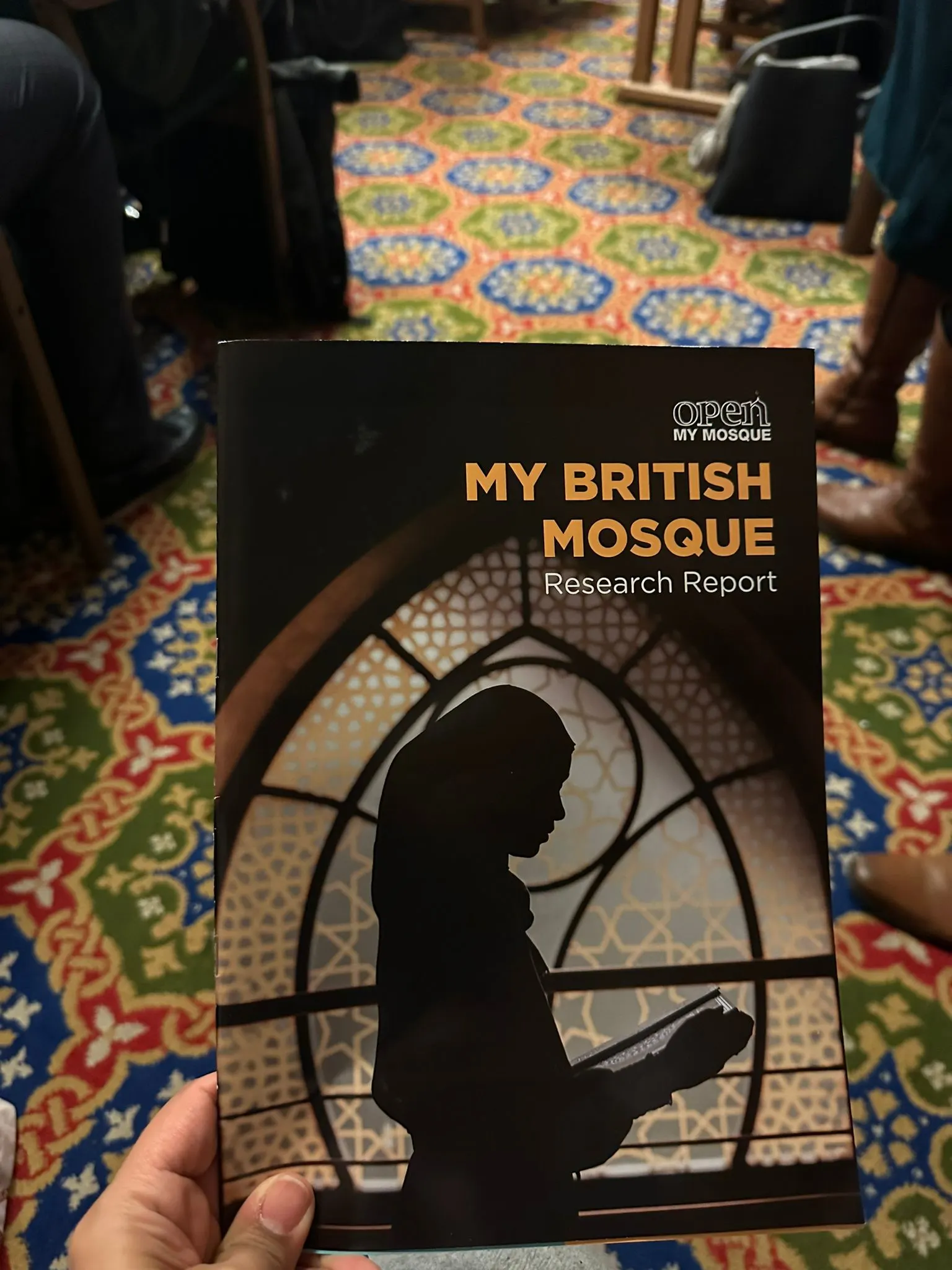
My British Mosque – What Worshippers expect from their places of worship.
During the pandemic OpenMyMosque and SOAS 180 Degree Consultancy launched a survey to British Muslim Worshippers. We asked whether mosque experiences in the UK match up to worshippers expectations, particularly from the perspective of women’s inclusion.
A cross-section of UK Worshippers responded:
- Most worshippers said that fewer than 20% of local mosques feel welcoming to women
- 60% had experienced negative or unfair treatment due to their being a woman
- In some cases, worshippers experience verbal abuse and intimidation when trying to pray or attend mosque as (or with) a woman
- 96% don’t believe Islam permits the exclusion of women from prayer or management roles in mosques
- Worshippers’ recommend having women more involved in the running of the mosque with ideas for better standard setting & independent accountability mechanisms
- Worshippers shared good practice examples from mosques who are doing inclusion well with positive impact on their worship and community life.
- Worshippers, most importantly, believe that the Prophet Muhammad’s mosque (PBUH) should be the benchmark for UK mosques
- 96% want to see a change
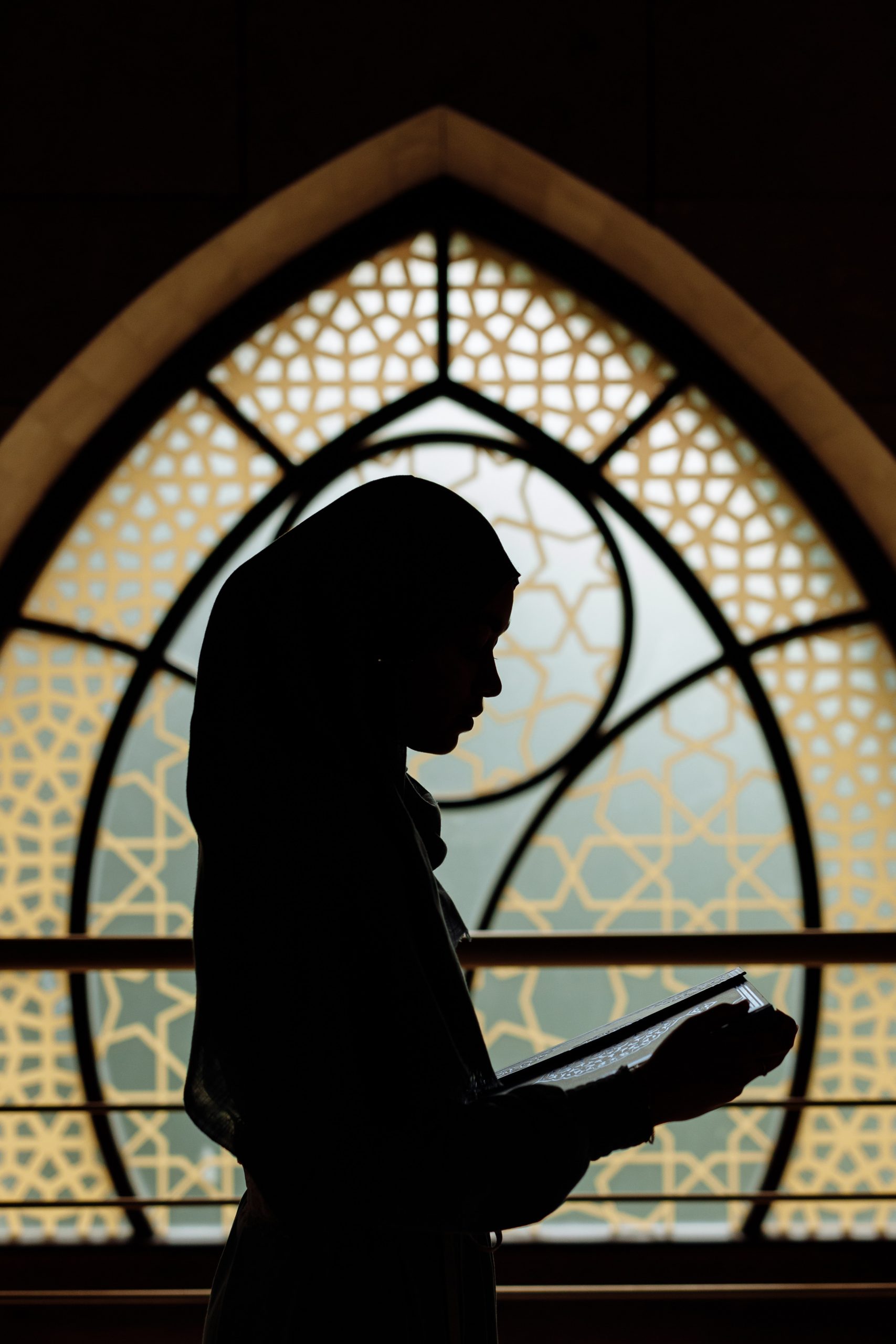
This report is part of a growing body of research making the case that British mosques are simply not providing for prayer or community in the ways that worshippers expect. Worse, they are actually harming Muslim Women’s spiritual life. In the worst case, research shows that we need protections for worshippers experiencing hostility and intimidation. See the Literature Review and Key Findings in the report for wider research and a theological context to the problem.
Acknowledgements
Researched by SOAS 180 Degree Consulting
Hania Imran, Daniel Echeverria, Eleanor Murray,
Anya Sivan, Sana Mansour, Georgina Oates and June Derz
Author Anita Nayyar
Producer Julie Siddiqi MBE
Copy Editor Katharine Szamuely
Expert Interviews
- Arzoo Ahmed – Founder – Muslim Women’s Histories
- Dr Shuruq Naquib – Lecturer in Politics, Philosophy and
Religion at Lancaster University with published studies on
female Islamic scholars and textual reading in the modern world
- Esmat Jeraj – Editor, Secretariat & Project Manager of the
Citizens Commission on Barriers to Muslims in Public Life
- Shahin Ashraf – Head of Global Advocacy Islamic Relief
- Abdul Hamid Qureshi – CEO Bolton Council of Mosques
- Shereen Williams MBE – Community Activist, Wales
- Nick Donaldson – Strengthening Faith Institutions Lead
Consultant for Faith Institution Engagement
- Aya Bdaiwi – (Formerly) Faiths Forum for London
- Fatima Rehman – Activist at SABR is Not Silence
- Shaukat Warraich – CEO Faith Associates
Open My Mosque is a Together We Thrive network campaign.
Thanks to our network members of academics, activists,
theologians, shariah law specialists and mosque leaders who
have reviewed and guided the report
Sponsors
We are grateful to : The Convert Muslim Foundation, Irfan Ahmed, Batool Al Toma, Naveed Muhammad
Mosques should be a hub of activity, the centre of community life. More than just a prayer space. Looking back to the time of Prophet Muhammad, pbuh, we can see vibrant places where everyone was welcome and respected.
According to the latest data held on the ‘Muslims in Britain’ website there are 2131 Mosques and of those, 72% have a listed place for women to pray.
Working alongside online campaigns such as Open My Mosque and My Mosque Story, we have heard stories from women all over the UK who have shared their experiences that paint a negative picture of the reality on the ground.
We also know that where Mosques are open and have good involvement from women, those places are better in so many ways.
In essence, our belief very much is that only when we do things together, we can thrive. By closing the door on half our community, we will never really progress. Muslim communities will never be the positive force for good that is possible if women are not involved or feel shut out.
This fits into other discussions around inclusion in general. How many young people are on your local Mosque board? Is your Mosque only catering for one ethnic group? When was the last time you saw a group of people in wheelchairs coming to pray at your local Mosque? How do parents with children who have special needs feel about coming with them to the Mosque? Have you seen sign language being used in regular prayers at your local Mosque? All relevant issues for us to ponder that should be high on the agenda.
This work is not new, of course not. Many have gone before us and we are indeed building on whatever we can of that.
A few areas we want to focus on where we have identified gaps in the current conversations among UK Muslims:
A nuanced mapping of UK Mosques particularly sharing women’s perspectives.
What can women learn from other faith communities and places of worship and how can ideas and best practice be shared?
Showcasing good examples of inclusive UK mosques where women are valued and involved in positive ways.
Organise discussions around Islamic teachings on issues connected with women, worship, scholarship and communal involvement. What did it look like at the time of Muhammad, pbuh? How have Muslim women been seen and appreciated throughout history to the present day?
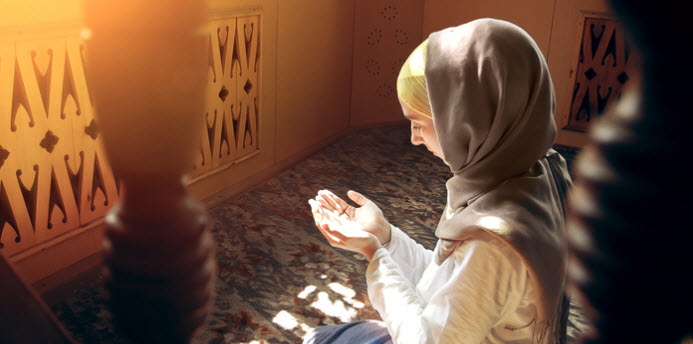
Do you want to be involved in some way?
This project is led by women but of course, we know the importance of working with male allies too.
All are welcome, message us and let’s talk!
Some useful links to learn more…
My Mosque Story
Work by our sisters in the US
Huffington Post


